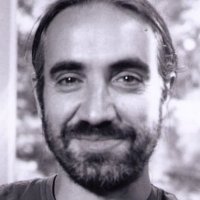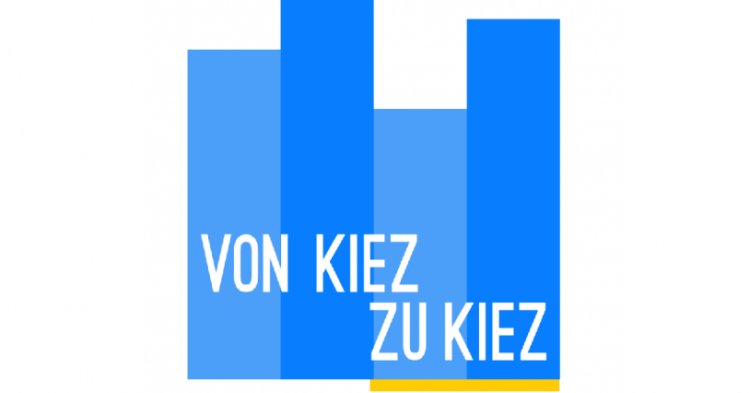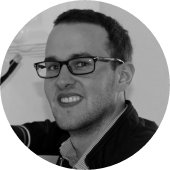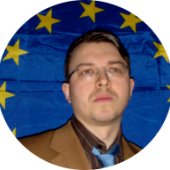TheNewFederalist.eu: What is the point of ’from hood to hood’?
Adrian Garcia-Landa: From hood to hood compares one topic in two EU cities. The idea is to create an EU-public within a neighborhood context, to do so in example we take a look at youth unemployment in Lille-Tourcoing (high) and Berlin-Wedding (low). In total during 18 months we will deal with 6 topics. Berlin is always one of the cities compared, the other city is chosen in respect to the subject. But it is not just about a sober topic comparasion. The project is set up, so that affected people can not only talk about their situation, but should also “learn” how to take on to change it. Therefore they are brought together with responsible officials from local, national and EU level. Thereby we cooperate with non commercial media. Not only since Kiez.FM itself is a non commercial radio station, but because this type of media is often rooted very locally and it represents the diversity of society more so than mainstream broadcasters.
How did the idea for the project come up?
Since October 2013 I am doing a monthly radio programme together with Radio Campus from France in the EU-Parliament, called Europhonica. During the first episodes I usually looked at topics from France and Germany. For example direct democracy: what instruments exist in both countries? Parliamentarianism: how much influence do Bundestag, Assemblée Nationale or the European Parliament have? Thereby I noticed, that through such a clear questioning one can learn a lot about the two countries and about the different models used. I thought it was a shame to limit this action only on France and Germany. Since in every medium or big sized city of Europe there is a non commercial radio/tv station that is oftenly very locally embeded, I thought in that way a question could connect two districts.
Why are those six topics, youth unemployment, Union citizenship, asylum policies, education for the job and mobility, minorities and digital economy / data protection particularly relevant for the project?
Originally we wanted to have 12 topics, one for every district of Berlin, but this would have taken 3 years. So we decided to just have 6. The project developpers have chosen the subjects that they personally cared most about. In my opinion all the topics are relevant: considering high youth unemployment we are creating lost generations in some countries of Europe, in other countries there is no such problem. The digital economy and the consequences for data protection is seen as a threatening but necessary development for some, others point out the chances and they develop mechanism for better protection. Students benefit from Europe because of Erasmus, but what is about trainees? Maybe one can learn from the other to improve his situation? We have chosen the topics we thought were important. After all it is all about curiosity and our desire to deal with the subject.
Your project description says you want to target a “new European public” with this radio programme and focus groups. What do you guys mean by that and what distinguishes this new public?
Did we talk about “new”? I don’t think so. In fact we want to create a European public and the new aspect is basically that it should arise from a neighborhood level. The EU is a top-down-project. It is a project of elites, which considered by itself is OK. But the democratic legitimation of many EU institutions is often questioned, except the European Parliament. Citizens could get the impression, that nobody asks them about where we are headed. According to Eurobarometer, the survey considering the acceptance of the EU, that is done twice a year, a majority of EU citizens doesn’t really understand the Union, feels bad informed, and not included into the process. The EU seems to be far away, but actually it defines our everyday live, especially on local level, but behind the curtain. We want to take the EU closer to the citizens and want to force the EU-people to leave their ivory tower or cheese cover. The EU must visit the city quarters of Europe and talk to the citizens. And the citizens could engage into a dialog instead of beeing disinterested. This dialog can gladly be critic, vital, controversial, but constructive. I am sure something really meaningfull can originate from this process. From hood to hood shows an alternative to the disinterest and should enable and show people how to take on their problems on local, national and EU level. In short words, they should ask themselves: What can I do so that politics does something for me. The project travels through political levels and media formats. Thereby it relies completely on the spoken word of the focus groups to identify soft factors, and using the radio and TV media to confront those with facts, leading up to an open discussion that unites all the previous aspects. By the way, the spoken word is the origin and core of parliamentarianism itself.
How is the project financed?
Till now it isn’t. But it should get funding from the Europe for Citizens initiative. We submitted our request in early March and expect the answer for late June.
The Robert Bosch Foundation suggested to us, we should request for additional funding concerning the topic of youth unemployment. With the extra money we could deal with the subject not only in Germany and France, but also in Belgium and Austria, with Radio Panic from Brussels and Orange from Vienna. Therefore we will reach a cultural dimension expanding towards the structures of single countries.
Wie können Interessierte mitmachen?
We are happy if media of all kinds will participate. Till now we cooperate with Café Babel, Radio Campus France, Radio Panik (Brussells), Radio Orange (Vienna), Radio Talos und Civil Radio (both Budapest), Radio FM100 und TV100 (Thessaloniki), KLFM (Split, Croatia), Radio & TV RTVA (Amstelveen, Netherlands), Tudeng.tv (Tallinn, Estonia).
Media partners get full access to all content and contacts that are created during the project. We ourselves will produce much content: 2 focus groups in 2 cities, 2 radio shows in those cities, 1 TV-broadcast in the EP, one public discussion in Berlin (filmed). People who participate cann use all the material for their work, also to critisize the project or to point at deficiencies. We are open to critisizm and know that journalistic productions can have flaws. Therefore we would be happy to be see other perspectives and interpretations beeing brought up by from Hood to Hood.
Questions were asked by Marcel Wollscheid.

About interviewee and project: Adrian Garcia-Landa works as editor for the free Berlin radio Kiez.FM and is the initiator of the project from Hood to Hood (German: „Von Kiez zu Kiez“). Kiez.FM and treffpunkteuropa.de engaged in 2016 into a media partnership. More on the project can be found on the project’s home page and on Facebook.



Follow the comments: |
|
